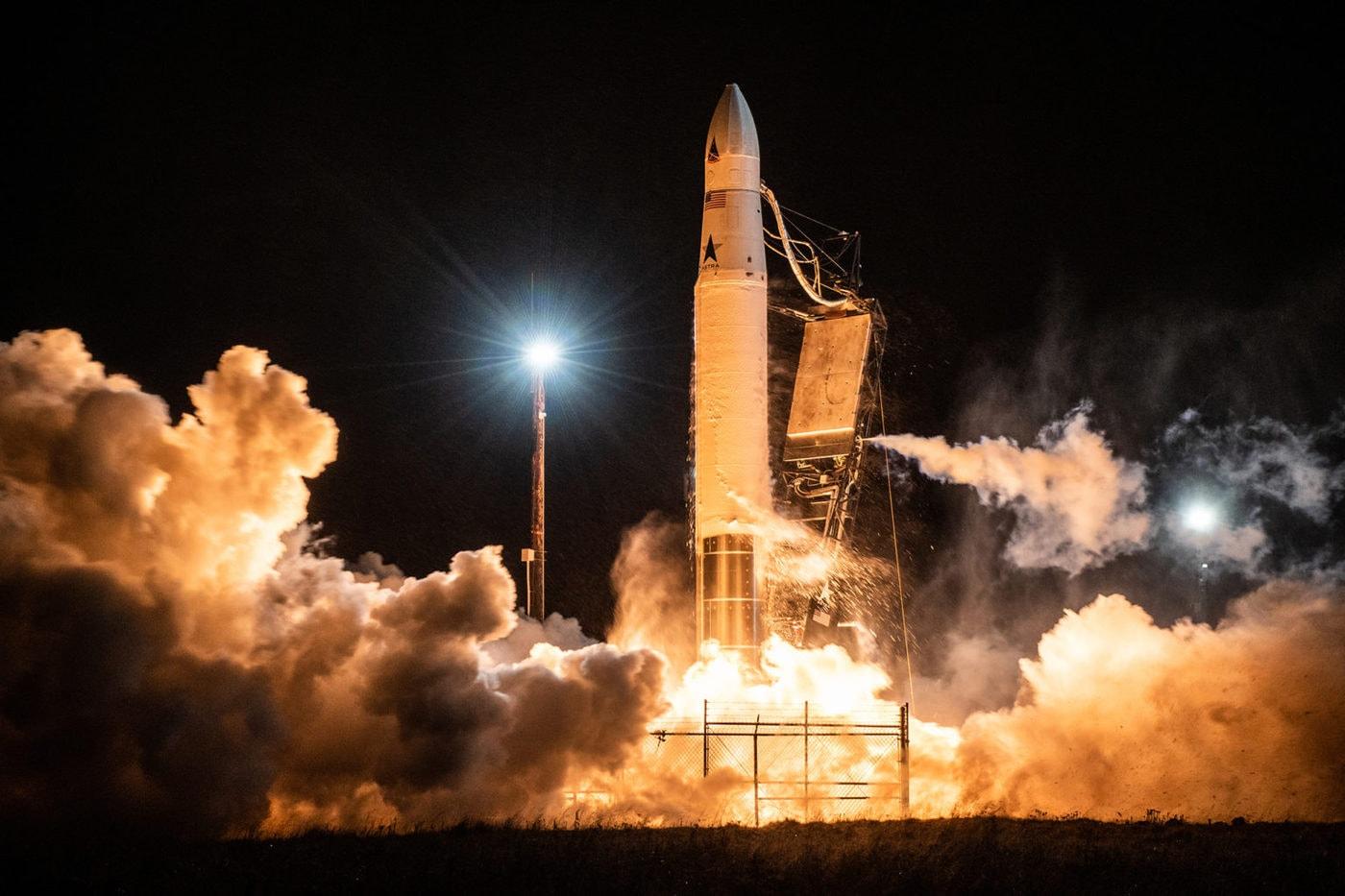
Astra Space, a small rocket startup that became a publicly traded company last year via a special purpose acquisition company (SPAC) but which has struggled with successful missions, plans to add turnkey satellite buses to its offering in 2023.
The company further is working on increasing the payload capacity of its launch vehicle to stay competitive among a growing list of rivals.
Yet, the Alameda, California-based startup faces an encyclopedia of business risk, as detailed in its first-ever annual U.S. regulatory filing and full-year financial results report released March 31. Those include substantial cash burn, internal control shortfalls and a financial restatement, “intense” competition from a growing cadre of better-financed competitors, two sets of shareholder lawsuits related to the SPAC deal, and even the need to secure longer-term facilities beyond the month-by-month lease governing its headquarters.
The company, which had not generated revenue through 2021, ended last year with $325 million in cash and equivalents. Executives believe that sum is enough to get it at least two years more, according to filings. There is no debt outstanding. The Launch Vehicle 0008 lofted on Feb. 10, 2022, carried its first paid commercial mission, but an electrical issue prevented the payload fairing from properly deploying and the mission failed.
The $325 million was net of almost $490 million raised via financing, starting with $464 million from the go-public SPAC deal. Five-year-old Astra incurred net losses of $257.8 million in 2021, $68.3 million in 2020 and $53.2 million in 2019. Research and development, its leading cost, burned $80.4 million in 2021 and $27.5 million in 2020.
“Our annual spending plan is focused on resource and capital efficiency,” CFO Kelyn Brannon told a conference call. “We are prioritizing designs, manufacturing and automation expertise for the production ramp of all products.” She said her team is targeting asset-based lending for future automation equipment purchases and focusing on projects with quicker return on investments. Consultants also are being cutback.
“To be clear, we are in the first phase of our business,” Brannon stressed.
The company has provided financial guidance only for the first quarter of 2022—which incidentally ended the same day, March 31, but will be reported in the future. Astra expects an adjusted pretax loss of $44-48 million for the first three months of 2022. The same loss in the last three months of 2021 was $36.1 million.
Another challenge is tightening internal controls. Last October, the company said it had to restate financial results reported for June 2021. The company belatedly in March 2022 figured out it is now considered a large accelerated filer with the Securities and Exchange Commission, and its 2021 statement was due at the start of the month rather than the end. Other remediation work is in progress, such as implementing additional review processes in the finance department, hiring more workers for the office, hiring outside accountants and installing better information technology.
Then there are the two court cases alleging violations of federal securities laws, with a class action starting Feb. 22 and a stockholder derivative suit March 8. Astra said both are “without merit” and it intends to defend itself “vigorously.”
The annual regulatory filing details several other challenges, including the month-to-month lease governing its Alameda site after talks remained unresolved with its landlord, the city. If an arrangement is not found, Astra could have to pay to reconstruct facilities elsewhere, as well as retain or recruit employees accordingly.
Above all, the marketplace remains tough and crowded. “We face intense competition in the commercial space market and amongst our competitors,” Astra said in the filing. Primary competitors for commercial launch are SpaceX, RocketLab, United Launch Alliance and Arianespace. “In addition, we are aware of a significant number of entities actively engaged in developing commercial launch capabilities for small and medium sized payloads, including Virgin Orbit, Relativity, ABL and Firefly, among others,” Astra said.
“Many of our current and potential competitors are larger and have substantially greater financial or other resources than we currently have or expect to have in the future, and thus may be better positioned to exploit the market need for small payloads and targeted orbital delivery, which is the focus of our business,” the company said.
At the same time, at least one of Astra’s customers—many of which are other new-space startups—already was acquired and taken out of the marketplace. “The customer acquisition by another space company resulted in a decrease of $30 million to our previously stated backlog,” according to Brennon. Astra ended 2021 with a $160 million backlog of work, up from $150 million soon after the start of last year.
Astra expects to host analysts and others at a so-called investor day briefing in Alameda during the current, second quarter, when more information will be provided, including about the new Rocket 4 launcher. Test flights of Rocket 4 are expected later this year.



